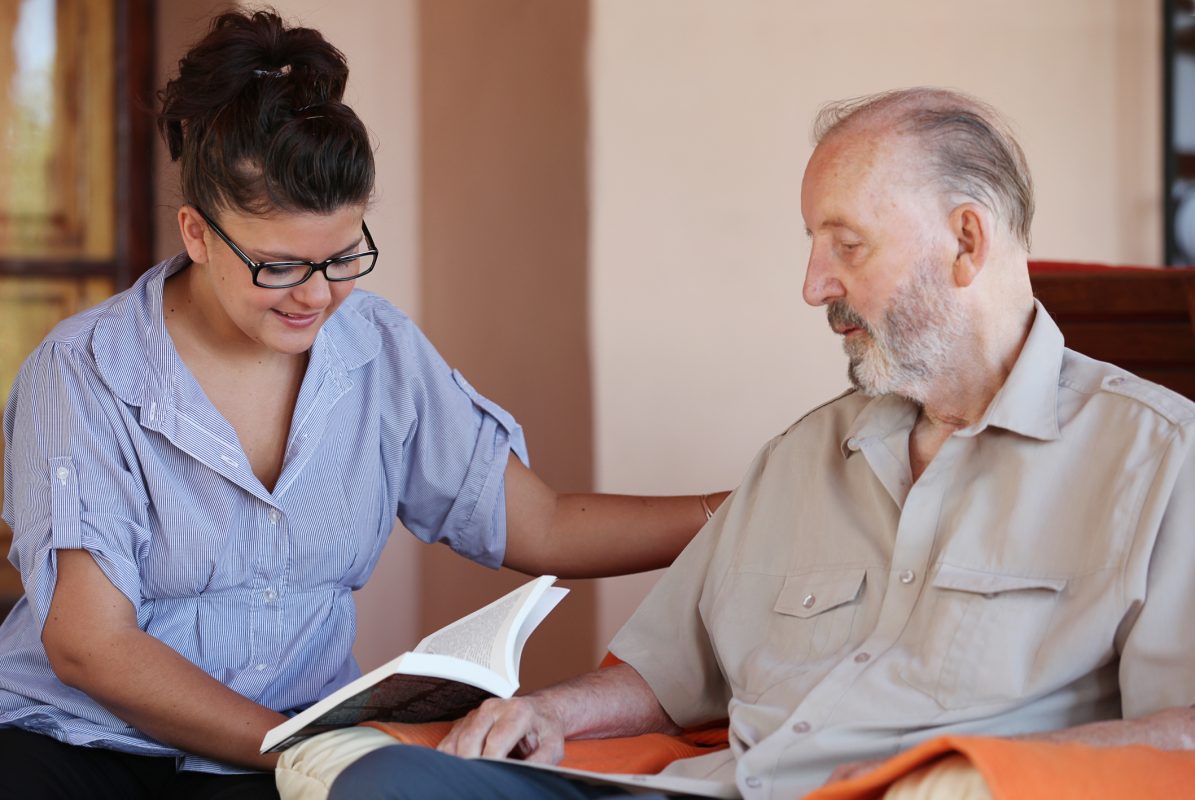Sarah White, Policy and Partnerships Manager (Health) at the national disability charity Sense outlines the importance of healthcare being accessible for people who are deafblind.
At some point in our lives, we will all need to access the healthcare system; whether through our GP, pharmacist, other healthcare professionals or specialist teams based in hospitals. From minor ailments to acute and specialist services, healthcare is vital for the health our nation – with over 1 million patients being seen every 36 hours1.
In a recent report, Sense outlined the experiences of people who are deafblind in accessing healthcare services and what the benefits of accessible services would bring.
There are 358,000 people in the UK who have a sight and hearing impairment and are therefore described as ‘deafblind’. Deafblindness can create difficulties with accessing information, communication and mobility – all of which can impact on how someone accesses a healthcare service. Whilst many people who are deafblind will use healthcare services relevant to their sensory impairment (for example an audiologist or ophthalmologist), many also access healthcare services related to other conditions – 69% of people with sight and hearing loss have 2 or more additional long-term conditions2.
If services are not accessible they will not be able to meet people’s needs. This may mean that people fail to seek treatment and their health care needs and treatment options will not be understood. It can also lead to poor patient/clinician relationships and lack of confidence in services and individuals.
A strong theme in our qualitative research was that many felt inaccessible healthcare services led to a reduction of control and independence. They needed to rely on friends and family members to be able to access services, resulting in a loss of privacy and dignity.
There are many different types of information formats and communication methods that people who are deafblind might use – depending on their levels of sight and hearing. For example, some people may need information in large print, braille or audio formats, or need a British Sign Language or deafblind manual interpreter to enable them to converse with their healthcare professional.
Accessing information is a key part of how we interact with healthcare services – for example, information on which services are available, public health awareness campaigns, information on screening, appointment letters and information on how to manage healthcare conditions.
Not being able to get this information can create barriers at all stages of the healthcare journey; from accessing a service in the first place, to being able to make an information choice about treatment options following a diagnosis. Of the deafblind people we asked, 85% reported that they don’t get information about their healthcare appointments or other information in a format that they could access. Most reported that they needed to rely on someone else to read their letters for them to find out what was in them.
When interacting with healthcare services, people who are deafblind may need to use different forms of communication, as for example, using the phone may not be accessible. In our research, very few people reported that, when they were required, interpreters were arranged – with many having to arrange themselves or use family members as interpreters. While some people who are deafblind need interpreters, other people – who may lip read or use hearing aids – can be greatly helped by using good communication tactics.
For many, the need to rely on others is disempowering and limits confidence and independence. Enabling people to access services independently and to engage directly with staff and services will lead to an increase in confidence and independence. If people who are deafblind feel confident to access services and know that their needs would be met, they are more likely to use these services.
It is clear that a lack of accessible information and communication support are the key barriers for many deafblind people in accessing healthcare. The Accessible Information Standard is therefore a welcome step in tackling these barriers head on.
The Accessible Information Standard sets out what health and social care providers must do to meet the information and communication needs of those who access their services. There are 5 key steps that providers must take:
- Identify the communication and information needs of those who use their service;
- Record the communication and information needs they have identified clearly and consistently on the individual’s record;
Have a consistent flagging system;
- Share the identified information and communication needs of the individual when appropriate;
- Meet the communication and information needs identified.
A fully accessible healthcare system will benefit not only those who are deafblind but also their family members and friends – effective communication benefits us all. It will also benefit health providers as they will be able to meet the needs of those who use their services and ensure that they get the right treatment at the right time and in the right way.
Sense is a national charity that supports people who are deafblind, those with sensory impairments and those with complex needs, to enjoy more independent lives. The charity’s expertise in supporting individuals with communication needs benefits people of all ages, as well as their families and carers. Sense provides information and advice, offers a wide range of flexible services and campaigns passionately for the rights of the people it serves.
To read a full copy of the Equal Access to Healthcare report visit: www.sense.org.uk/healthreport
For more information on the Accessible Information Standard visit: www.sense.org.uk/ais
For more information on how to make your healthcare service more accessible visit: www.sense.org.uk/italladdsup
1 http://www.nhs.uk/NHSEngland/thenhs/about/Pages/overview.aspx
2 Annual Report of Chief Medical Officer, 2012, On the State of the Public’s Health; www.gov.uk/government/uploads/system/uploads/attachment_data/file/298297/cmo-report-2012.pdf
Sarah White
Policy and Partnerships Manager (Health)
Sense











